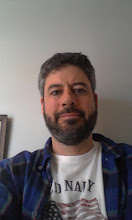Planet Earth is a TV series produced by the BBC Natural History Unit that was originally aired in the United Kingdom back in the year 2006. After a few episodes where Richard Attenborough introduces us to a few ecosystems (the poles, the mountains, fresh water, the seas...), there are a few more where they take a step back and consider the environmental problems we are facing as a society.
What did I learn?
(Sophia)
I learned that there are many endangered species in our world that, most likely, the next couple of generations will not be able to see themselves, only in movies or documentaries because we are endangering a lot of animals. I also learned that we are taking a lot of water from rivers by taking some using the dams. One river from Colorado that ends in the Gulf of California, is polluted because people throw chemicals into the river and all those chemicals they throw into the river goes to the Gulf of California and so, most of the fish there are dying, and it just so happens that that river doesn't have much water the same as other rivers that don't have a lot of water left. An what I think, is that if everyone on this planet tried to help, we could save many of the animals and rivers that are about to disappear.
I also learned that on some mountains, animals are going to disappear because farmers are using those areas to grow there crops, so, since eventually they need to move up, the animals that live there also need to move up, so now they are on top of the mountain and have no were to go, so, most likely, they will go extinct. Also there are a group of animals that live on top of a place with a lot of oil, so the people want to dig there to be able to use it, now, they say that there wont be any accidents, but, of course there will be accidents. And, maybe now they only want to use a little of the land, but later, they will say the same and soon the land will be gone; also, they may say that they only need to use some land, but it's obvious that they're going to need land to build houses and places to work and get the things that they may need, and food, and roas to go to town and so that cars can drive and transport people and oil.
In a different documentary, there was a species of animal that was called The Golden Toad from a different episode (the previous one) and it talks about how one day someone went to study it, but that it was extinct; because people used to use frogs to see if a women was pregnant, and some of the toads that they used escaped, and since they used chemicals on them, they spread some sort of disease and so now they are extinct, within the last few decades! And I don't think that's a very good thing.
So, I would just like to say that the scientist looked so worried, that some almost looked they were about to cry. So, if that doesn't worry you...
Also in a different documentary, it was talking about how the ice is melting, and, I mean like, super fast. Last year there was enough of ice so that Polar Bears can hunt easily, in a documentary, it showed a polar bear that started hunting at it's normal time, but most of the ice was gone. So the polar bear nearly froze to death (or drowned); but it reached land and since it was starving, it tried to kill a walrus, which a polar bear barley ever does, so you could see it was desperate. And the same documentary talked about how the ice from The North Pole may be gone soon, so the oceans and seas will rise about thirty meters.
Now, I think that the world that we live in is very beautiful, and that we at least owe to our planet, Planet Earth, and all the living things on it the trouble of trying to save it, and I think that if everyone helped we could save it (mostly). Because I've seen very tragic things in the documentaries, and, like I said, we owe it to our planet and to all the living things on it (not just us humans) to try and save it.
domingo, 15 de noviembre de 2009
Planet Earth: The Future. Into the Wilderness.
Etiquetas:
Conocimiento del Medio,
documentaries,
environment,
Planet Earth
Suscribirse a:
Enviar comentarios (Atom)

No hay comentarios:
Publicar un comentario